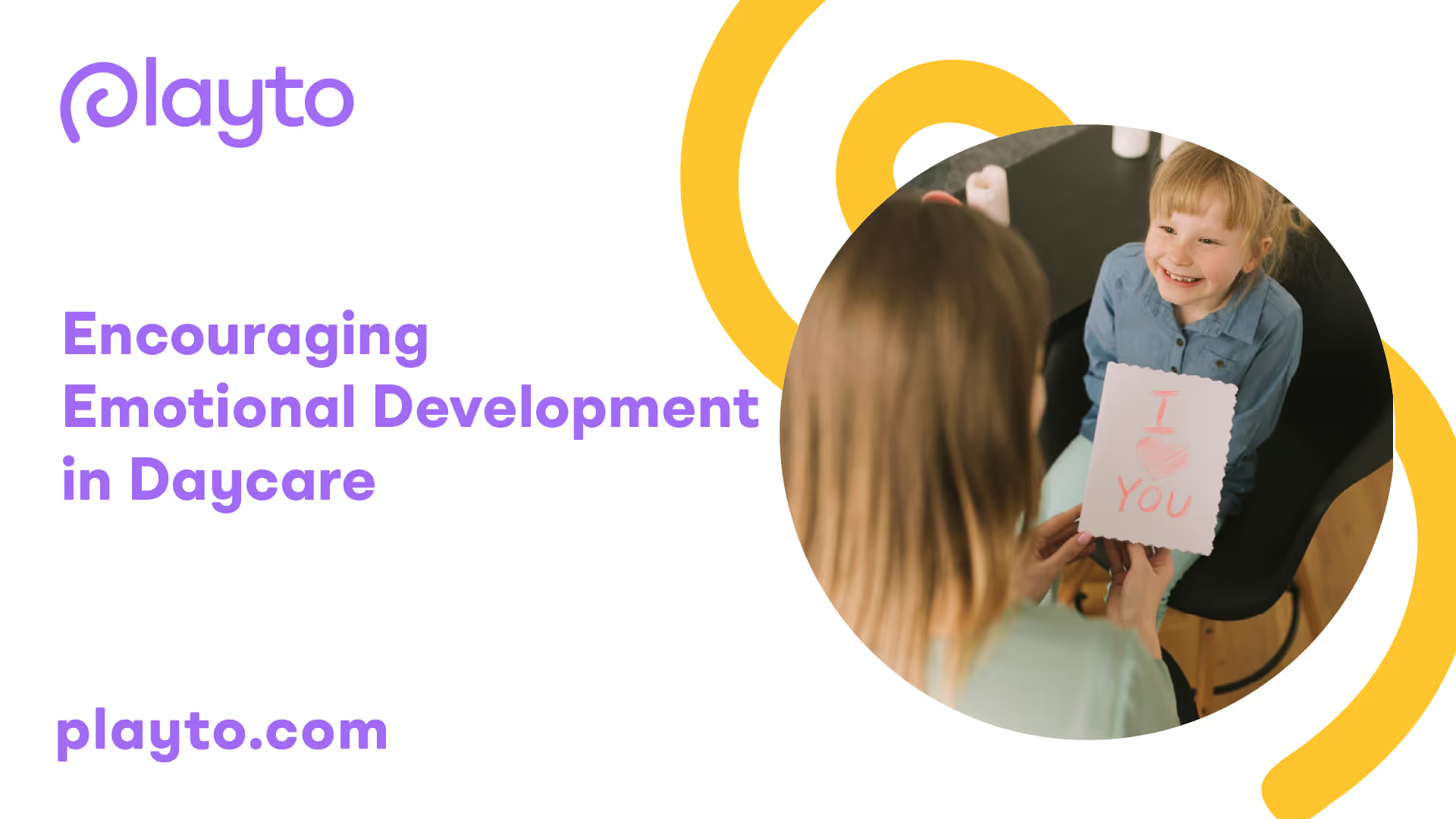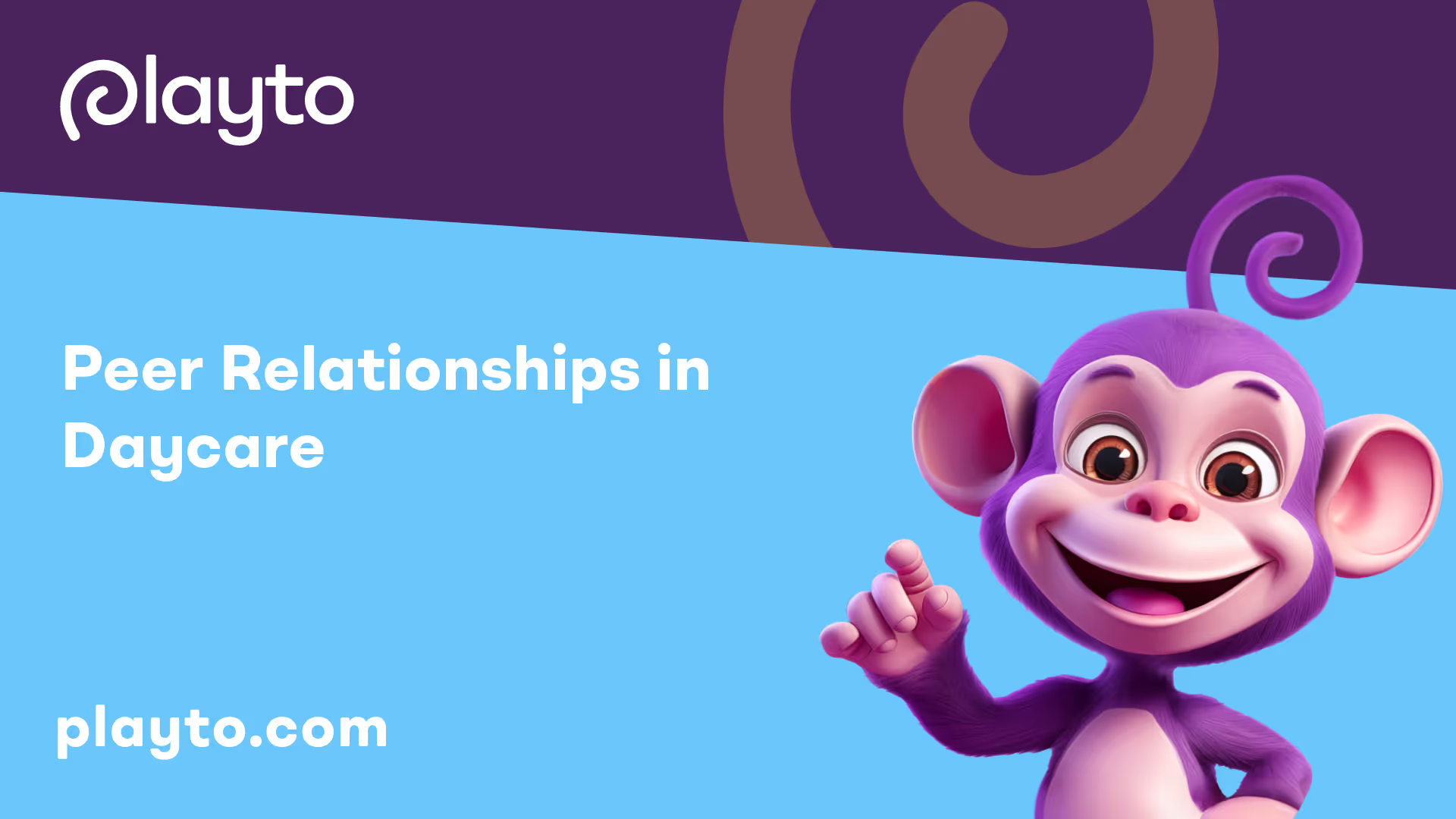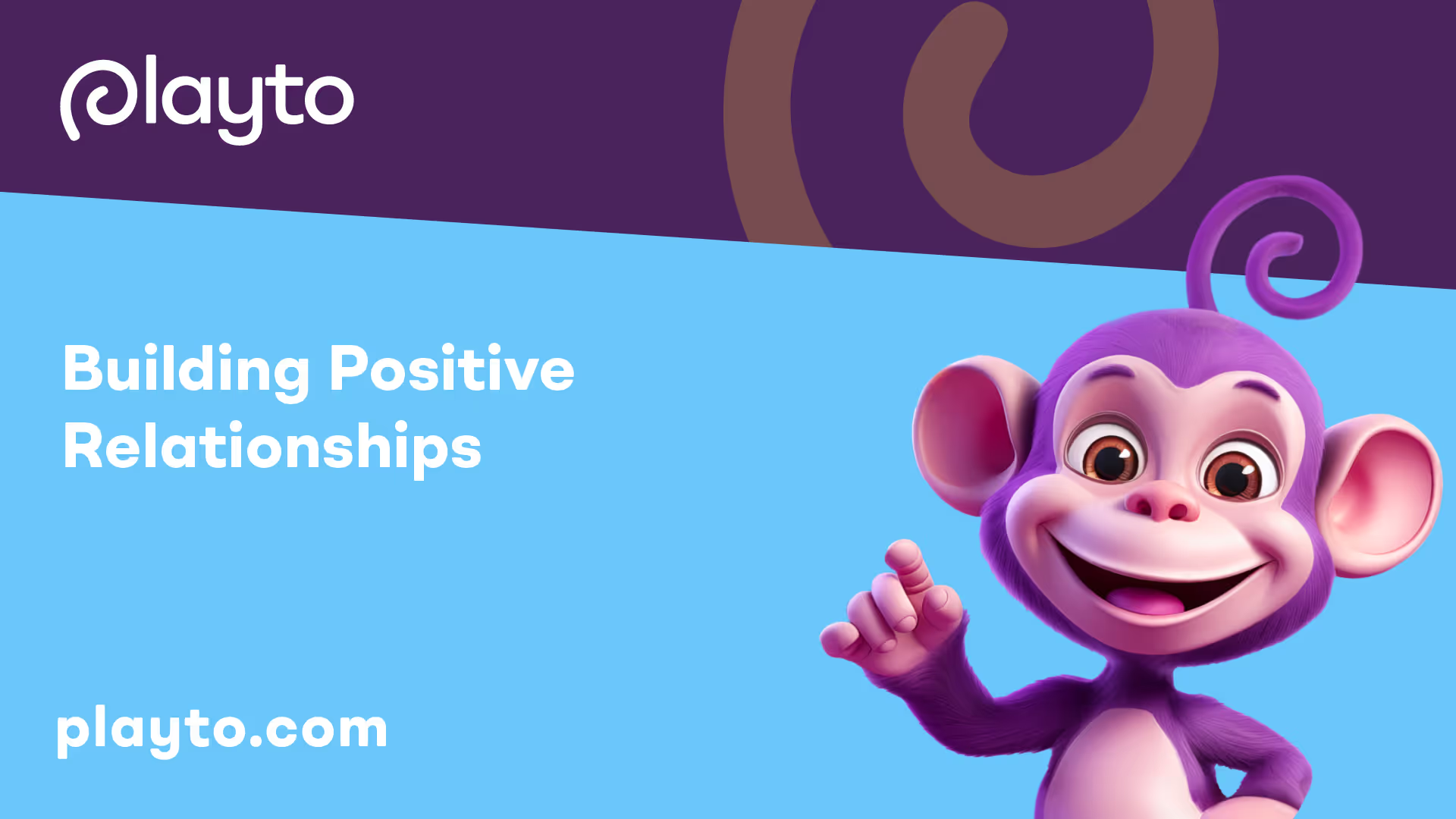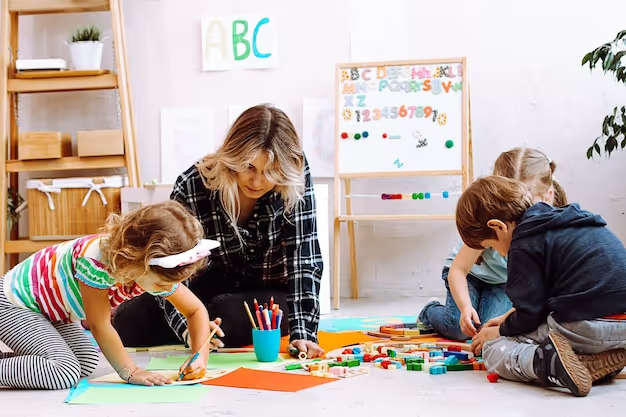
Promoting Emotional Development
Emotional development is a critical aspect of a child's overall growth and well-being. Daycare settings play a significant role in fostering this development through various strategies and interventions. In this section, we will explore the importance of early social interactions and the long-term effects they have on mental health.
Importance of Early Social Interactions
Early social interactions are vital for a child's emotional development. These interactions provide opportunities for children to learn and practice important social-emotional skills, such as empathy, communication, and cooperation. Through interactions with peers and caregivers, children develop a sense of belonging, build self-confidence, and learn to regulate their emotions.
Research has shown that early peer relationships have a significant correlation with various behaviors. For instance, peer rejection during early childhood has been linked to increased risk for externalizing symptoms, such as aggression and delinquent behaviors. Moreover, problems in early peer relationships, particularly peer rejection, may also be related to an increased risk for internalizing problems like anxiety and depression.
Given the long-lasting impact of these early interactions, it is crucial for daycare providers to create an environment that supports positive peer relationships and facilitates healthy emotional development. Encouraging children to engage in cooperative play, sharing, and turn-taking can help build essential social skills that contribute to their emotional well-being.
Long-Term Effects on Mental Health
The quality of early social interactions in daycare settings can have significant long-term effects on a child's mental health. Research suggests that early peer relationships, particularly as assessed qualitatively, are the most important predictor of internalizing problems among adolescents. This underscores the importance of monitoring young children's social interactions as a potential window into their psychological adjustment and well-being.
Friendships, in particular, play a crucial role in a child's social-emotional development. Establishing and maintaining friendships allow children to broaden their horizons, develop a sense of self, and form a social support system. Positive relationships at home can contribute to a child's ability to make and keep friends, understand healthy relationship dynamics, and navigate social interactions successfully.
Daycare providers can support emotional development by creating a nurturing and inclusive environment that encourages positive relationships among children. By fostering an atmosphere of acceptance, empathy, and respect, daycare professionals can lay the foundation for healthy emotional development and contribute to a child's long-term mental well-being.
In the next sections, we will explore peer relationships in daycare settings, strategies for building positive relationships, and other ways to enhance emotional development in children.

Peer Relationships in Daycare
In a daycare setting, peer relationships play a crucial role in a child's emotional development. Interactions with peers provide children with valuable opportunities to learn and grow. In this section, we will explore the impact of peer relationships on behavior and their role in emotional adjustment.
Impact on Behavior
Early peer relationships have a significant correlation with behavior, both positive and negative. Research has shown that early peer rejection is associated with increased risks for aggressive, delinquent, oppositional, and illegal behaviors. Children who experience rejection from their peers may be more prone to externalizing symptoms. On the other hand, children who have positive peer relationships tend to exhibit more socially appropriate behaviors and have a lower risk of engaging in negative behaviors.
Role in Emotional Adjustment
Peer relationships also have a significant impact on a child's emotional adjustment. Problems in early peer relationships, particularly peer rejection, may be related to an increased risk for internalizing problems such as anxiety and depression. Chronically rejected children, especially boys, are vulnerable to internalizing difficulties. Conversely, children who have positive and supportive peer relationships are more likely to have better emotional adjustment and mental well-being.
It is important to note that the quality of peer relationships is more important than the quantity. Qualitative peer relationships, characterized by positive interactions and support, have a stronger influence on a child's emotional adjustment than the number of peers they interact with. Having good peer relations during early childhood is associated with better overall mental health and adaptability. Conversely, difficulties in peer relationships can increase the likelihood of emotional adjustment problems.
Parents, teachers, and early childhood educators should monitor young children's peer interactions as a potential window into their psychological well-being and adjustment. By fostering positive peer relationships and providing support, children can develop the social and emotional skills necessary for healthy emotional development.
Understanding the impact of peer relationships in daycare is essential for creating an environment that promotes positive interactions and emotional growth. By encouraging healthy peer interactions and providing guidance, daycare providers can support children's emotional development and contribute to their overall well-being.

Building Positive Relationships
In a daycare setting, building positive relationships is a crucial aspect of encouraging emotional development in children. Positive relationships with adults and peers play a significant role in shaping a child's emotional well-being and social skills. Let's explore the influence of adult role models and the importance of encouraging friendships in daycare.
Influence of Adult Role Models
Adult role models have a profound impact on children's emotional development. Positive relationships with adults help children feel good about themselves and encourage them to be active and participatory in their learning. Research shows that children who have relationships with positive adult role models have reduced stress levels, higher academic achievement, and better peer relationships.
In daycare, caregivers and educators serve as important adult role models. By demonstrating warmth, empathy, and respect, they create a nurturing environment that fosters emotional growth. When children observe adults modeling positive behaviors and effective communication, they are more likely to develop healthy emotional regulation, empathy, and problem-solving skills.
Parents also play a crucial role as adult role models. Their presence during play and interaction with their children strengthens the parent-child bond and creates opportunities for teaching and learning. When parents engage positively with their children, it enhances their emotional well-being and provides a solid foundation for healthy relationships.
Encouraging Friendships
In addition to adult role models, encouraging friendships among children is vital for their emotional development. Positive peer relationships teach children important social skills and provide opportunities for emotional growth. Children who have been exposed to positive relationships at home typically have an easier time making and maintaining friendships, understanding the normal give-and-take in healthy relationships.
Daycare environments provide an ideal setting for children to interact and form friendships. Caregivers can facilitate friendship building by creating opportunities for collaborative play, group activities, and shared experiences. By promoting cooperation, empathy, and conflict resolution skills, caregivers help children navigate social interactions and develop meaningful connections.
For children with anxiety disorders or those who struggle with socialization, extra support is essential. Caregivers can provide guidance, create a safe and inclusive environment, and model appropriate social behavior. Supporting these children in developing friendships and strengthening their coping mechanisms is crucial for their social-emotional growth and overall well-being [2].
In daycare settings, the warmth and emotional affection displayed by educators significantly boost children's confidence, emotional development, and social skills. When children feel valued and supported, they develop a sense of security and willingness to engage with peers, contributing to their social and emotional well-being.
By emphasizing positive relationships with adult role models and fostering friendships among children, daycare providers play a vital role in promoting children's emotional development. These relationships provide a foundation for emotional growth, social skills, and lifelong well-being.
Strategies for Emotional Support
To foster emotional development in daycare settings, it is important to implement strategies that support children's social-emotional skills and establish safe environments. By focusing on these aspects, daycare providers can create nurturing spaces where children can thrive emotionally.
Teaching Social-Emotional Skills
Teaching social-emotional skills is a fundamental aspect of supporting emotional development in daycare. Research shows that children who learn these skills in their early childhood programs tend to have greater academic achievement compared to those who do not receive this support.
One effective strategy is to use power words that help children express their wants and needs effectively during conflicts. These power words, such as "Stop!" or "I don't like that," coupled with a firm tone of voice and physical gestures, can empower children to communicate assertively and navigate social situations.
Another important aspect of teaching social-emotional skills is helping children understand the consequences of their behavior. By guiding them to make connections between their actions and the responses they receive, children can develop a sense of empathy and learn to regulate their emotions effectively.
Establishing Safe Environments
Creating safe and nurturing environments is essential for supporting emotional development in daycare. A safe environment provides children with a sense of security, allowing them to explore their emotions and develop healthy coping mechanisms.
Active, empathetic listening is a powerful tool for encouraging emotional development in children. By noticing their emotions, moving to their level, making eye contact, offering a gentle touch, and reflecting back their feelings in a way they can understand, caregivers can validate children's emotions and help them develop emotional literacy.
Visual cues, such as hand puppets and designated spots for calming down, can assist children in practicing social and emotional interactions. These cues, along with teachers' modeling of behaviors, help children learn social and emotional skills meaningfully.
By implementing these strategies, daycare providers can create an environment that supports emotional development and fosters the growth of children's social-emotional skills. These approaches contribute to a positive and enriching experience for children, laying the foundation for their emotional well-being both in and outside of daycare.
Enhancing Emotional Development
To foster emotional development in daycare settings, it is important to recognize the emotional needs of children and provide nurturing environments that encourage emotional affection. By creating a supportive and responsive atmosphere, daycare providers can play a pivotal role in promoting the emotional well-being of young children.
Recognizing Emotional Needs
Recognizing and understanding the emotional needs of children is key to supporting their development. Each child is unique, and their emotional needs may vary. It is important for daycare providers to be attentive to the individual emotions and behaviors of each child and respond appropriately.
By observing children's facial expressions, body language, and verbal cues, daycare providers can gain insights into their emotional states. This awareness allows them to provide the necessary support and guidance to help children navigate their emotions effectively. For example, if a child is displaying signs of frustration, a daycare provider can provide reassurance, guidance, and problem-solving strategies to help the child manage their emotions.
Nurturing Emotional Affection
Nurturing emotional affection involves creating an environment that fosters a sense of security, trust, and empathy. Daycare providers can cultivate emotional affection by building strong and positive relationships with the children in their care. This can be achieved through acts of kindness, active listening, and providing emotional support.
By establishing warm and caring relationships, daycare providers can create a safe and nurturing space where children feel comfortable expressing their emotions. This, in turn, helps children develop a healthy sense of self-worth and emotional resilience.
Daycare providers can also model and encourage empathy and compassion among the children. By teaching children to understand and respect each other's emotions, daycare providers help lay the foundation for positive social interactions and emotional growth.
For children with anxiety disorders or other emotional challenges, it is essential to provide additional support. This involves forming positive relationships, building trust, and modeling coping skills. Encouraging these children to build friendships and strengthen their coping mechanisms is crucial for their social-emotional growth and reaching their full potential.
By recognizing emotional needs and nurturing emotional affection, daycare providers can play a vital role in enhancing the emotional development of children in their care. These efforts contribute to the overall social-emotional well-being of children and lay the groundwork for their future emotional intelligence and resilience.
Providing high-quality early childhood education and care (ECEC) programs is also beneficial for children's social-emotional development. Engagement in ECEC services can strengthen children's social-emotional and cognitive development, with long-lasting benefits. Quality ECEC programs promote language and literacy skills, social-emotional competence, and behavioral engagement, particularly for children facing economic disadvantage. For more information on promoting social and emotional health in daycare, check out our articles on encouraging language development in daycare, encouraging social development in daycare, and encouraging cognitive development in daycare.
Quality Early Childhood Education
In the realm of daycare, quality early childhood education plays a pivotal role in encouraging emotional development in children. Two key components of this are ECEC programs and curriculum-based Social and Emotional Learning (SEL) programs.
Benefits of ECEC Programs
Engagement in Early Childhood Education and Care (ECEC) services can have a profound impact on children's social-emotional and cognitive development. Research has shown that children who participate in high-quality ECEC programs experience lasting benefits in various areas of their development. These programs are particularly important for children who face economic disadvantages [7].
The benefits of ECEC programs include:
- Improved language and literacy skills.
- Enhanced social-emotional competence.
- Increased behavioral engagement.
By providing a nurturing and stimulating environment, ECEC programs lay a solid foundation for emotional development. They offer opportunities for children to interact with peers and caring adults, fostering social connections and emotional growth.
Curriculum-Based SEL Programs
Curriculum-based Social and Emotional Learning (SEL) programs implemented in early learning settings are another effective approach to promoting emotional development. These programs focus on enhancing the quality of educator-child interactions, modifying the room environment, and introducing structured peer interactions.
Curriculum-based SEL programs in daycare settings aim to:
- Provide explicit instruction on social-emotional skills.
- Incorporate child-centered practices.
- Utilize positive classroom management strategies.
By integrating social-emotional skill instruction into the curriculum, these programs help children develop self-awareness, self-regulation, empathy, and problem-solving skills. They create an environment that supports emotional growth and lays the groundwork for positive emotional well-being.
In conclusion, high-quality early childhood education programs, such as ECEC programs and curriculum-based SEL programs, are instrumental in fostering emotional development in daycare settings. By providing a nurturing and stimulating environment and incorporating explicit social-emotional skill instruction, these programs empower children to develop strong emotional foundations that will benefit them throughout their lives.
References
- [1]: https://www.ncbi.nlm.nih.gov/pmc/articles/PMC4965647/
- [2]: https://www.virtuallabschool.org/school-age/social-and-emotional-development/lesson
- [3]: https://www.gowriensw.com.au/thought-leadership/types-of-play-for-early-childhood-development
- [4]: https://lillypillyeec.com.au/early-childhood-educators/
- [5]: https://teachingstrategies.com/blog/5-ways-support-social-emotional-development-early-childhood/
- [6]: https://www.naeyc.org/resources/pubs/yc/promoting-social-and-emotional-health
- [7]: https://www.ncbi.nlm.nih.gov/pmc/articles/PMC7036843/
